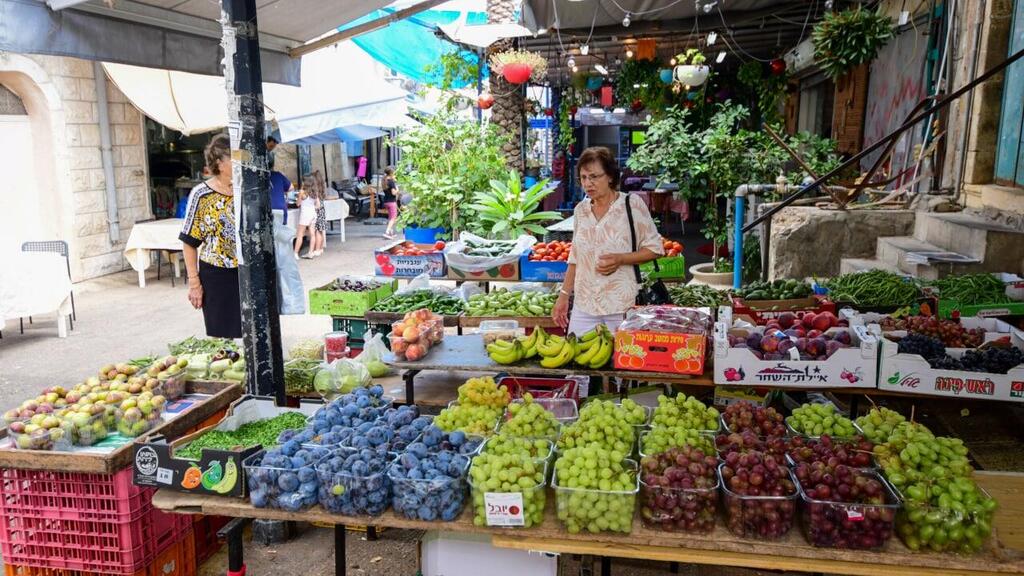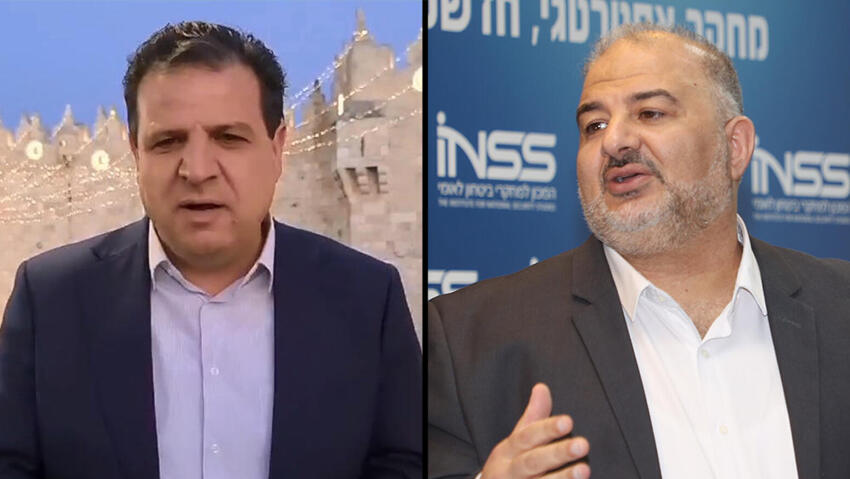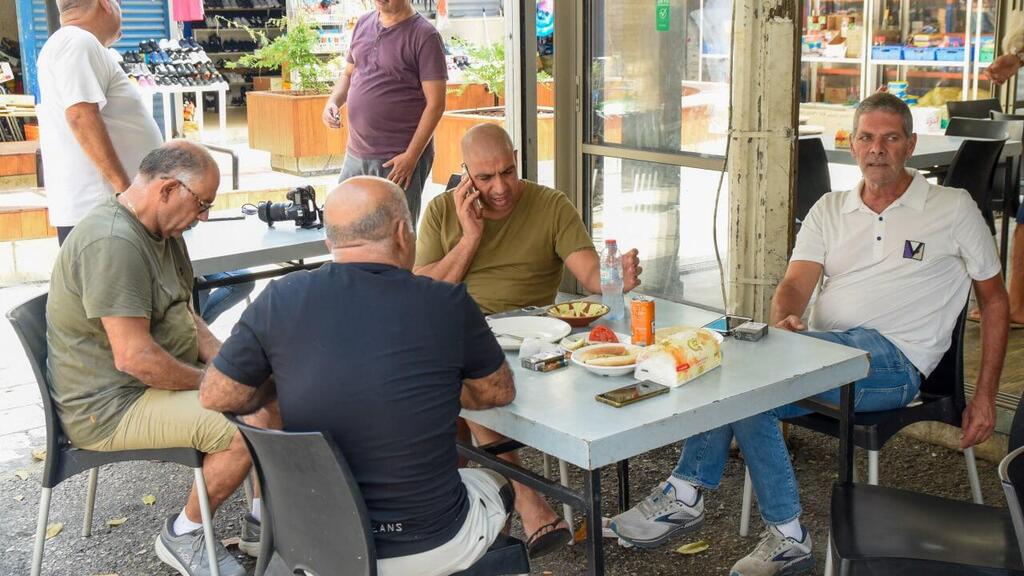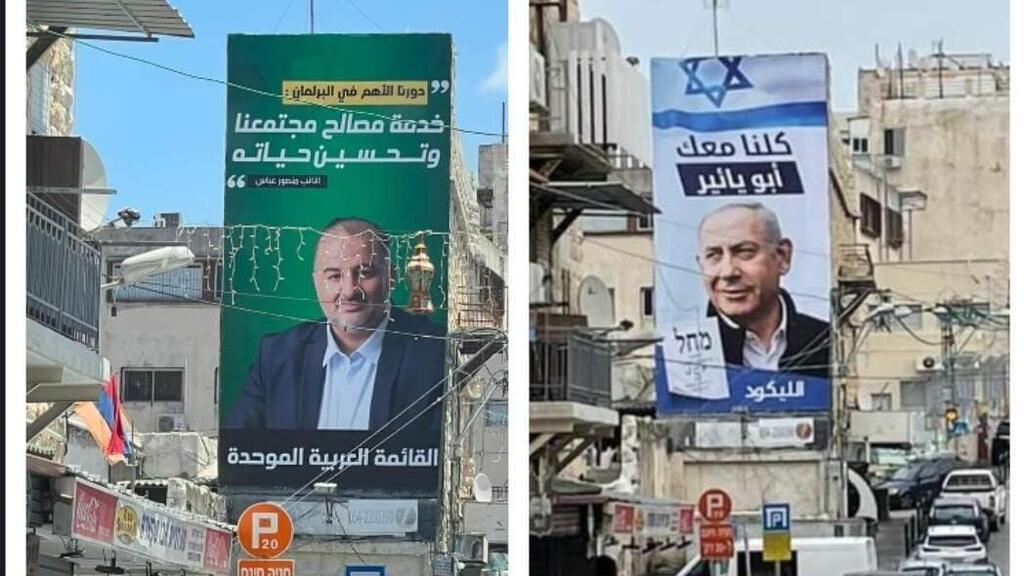The market in Haifa's Wadi Nisnas neighborhood, whose small alleyways are a bursting with authentic Palestinian culture, offers a representation of the political stance of Israeli Arab voters ahead of the upcoming elections.
Um Elias, a vendor at the market for over 50 years, asks her neighboring at the next stall, if the portrait of Ra'am Chairman Mansour Abbas still hangs on the wall.
Upon being told that it was taken down, Um Elias smiles and continues to talk in admiration of Joint List Chairman Ayman Odeh.
"Who's better than him?" she asks. "Ayman is loved by all of us. We need to vote for him with all our power."
Several other local women join the conversation, expressing their support for the Hadash communist party, a faction in the predominately Arab Joint List alliance of parties.
"Mansour Abbas has no support here," says one of the women angrily. "If he walks around here in the market we won't acknowledge him. They were all in the Joint List. Why would he split it up? From the moment they abandoned the List, we're no longer in their favor."
For years, the Wadi Nisnas neighborhood of the mixed Jewish and Arab city, would set the cultural and political status quo of Arabs in Israel. Many of the editorial writers and Arab influencers grew up in these streets. The people from the neighborhood remain loyal to one another and to the Hadash movement.
Hadash – Democratic Front for Peace and Equality, is a Arab-Jewish communist party, currently led by Ayman Odeh, that has run in every Knesset since its establishment in 1977.
During elections, a huge wall in the heart of the neighborhood is transformed into a billboard on which huge posters of candidates are hung. Ahead of the upcoming elections in November, a poster of Ra'am was put up, and removed after a few days.
Despite the reputation for political involvement, recent years have shown fewer Arabs from Haifa participate in national elections. In the last ballot, the voter turnout of Haifa Arabs was only 43%. Only 39% of them voted for the Joint List and Ra'am, and 4% for the other parties.
"Many people have become indifferent. Enough, how many times can we vote?" asks Walid Bolus, who sits in the vibrant meeting place of Friday mornings in the neighborhood - Ihab Sabiti's hummus eatery.
"Bibi is the ultimate leader of the State of Israel," Sabiti exclaimed. "I support whoever is strong. I don't vote for the Arab parties. I'm against the extremists, Ben Gvir and Smotrich, but I support Bibi who has proved himself," he says.
Asked what role the controversial Nation State Bill, condemned for marginalizing Arab citizens, plays in his decision, Sabity says all he cares about is going to work and making a living.
The Nation-State Bill, specifies the nature of the State of Israel as the nation-state of the Jewish people.
"The Nation-State Bill is for politicians. It doesn't influence me. I know what my nationality is and who I am, I am an Israeli citizen and I want a strong economy, that's it," he says.
Hamudi Masri, a young lawyer who serves as chairman of the neighborhood committee claims that "there are many people who will boycott the elections because we're tired of them."
Ja'far Farah, Director of the Mossawa Center for the rights of Arab citizens of Israel, expresses similar concerns. "There is an apathy towards the elections," he says.
If in 2015, 65% of the Arab public went to vote, and in 2019 and 2020 they voted for the Joint List and reached 15 mandates, now the Arab public learned the power of boycott," he says. "The fact that only about ten thousand vote for Ra'am and the Joint List is sad. There is great potential here for a unity but it is not pursued."
Despite having a long-lived communist stronghold and a reputation of dictating the political agenda, Hadash is currently not doing enough to encourage its supporters to vote. This explains the widespread apathy and indifference amongst the community. And if this is the case in the historical stronghold of commonwealth and unity, then it will certainly be much worse in other Arab communities.





